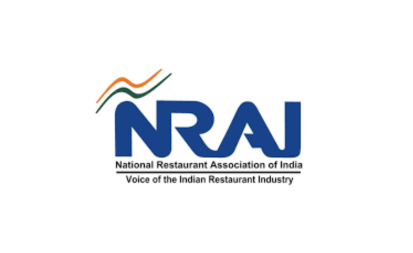
Restaurant and Food Services Sector: NRAI Seeks Budget Support
The National Restaurant Association of India (NRAI) is advocating for specific support in the upcoming Union Budget to enhance the restaurant and food services sector. As a significant contributor to India’s economy, this sector plays a vital role, not only in generating substantial tax revenues but also in creating employment opportunities. With expectations to directly employ 8.5 million people by 2024 and grow to 10.3 million by 2028, the sector’s importance cannot be overstated. In fact, the restaurant and food services sector is valued at INR 5.69 lakh crore, surpassing the Indian Film Industry, Hotel Industry, and Pharmaceuticals Industry.
The NRAI believes that with appropriate policy and budgetary support, the restaurant and food services sector can experience accelerated growth, expand further, and create numerous job opportunities across India. As India is set to become the third-largest market for the restaurant and food services sector by 2028 and the second-fastest growing globally, the NRAI has outlined several key areas for consideration in the upcoming budget:
Restoration of GST Input Tax Credit (ITC): Currently, the restaurant and food services sector is subject to a 5% GST without the benefit of ITC. This lack of ITC increases operating costs and impacts expansion plans. The NRAI recommends restoring ITC while increasing the GST rate to 12% for higher revenue sectors. This adjustment can help balance compliance and financial burdens across different business scales.
Creation of a Separate Food Services Ministry/Department: The diversity and richness of regional Indian cuisine are significant assets that can boost tourism and the overall growth of the restaurant and food services sector. A dedicated ministry or department for food services would streamline regulations and policies, reducing compliance burdens and promoting a more cohesive growth strategy.
Granting Industry Status: Awarding industry status to the restaurant and food services sector would facilitate access to benefits such as easier financing, special schemes, and subsidies. This recognition would encourage entrepreneurship and support the sector’s overall development.
Rationalization of Licenses/NOCs: The requirement for numerous licenses and permits creates operational challenges and hinders business expansion. A simplified and standardized licensing process would ease compliance and support the growth of the restaurant and food services sector.
Fair E-Commerce Policy: Balanced regulations are needed to ensure fair competition between online platforms and traditional food services, protecting all stakeholders from potentially exploitative practices.
Reinstatement of the Service Export from India Scheme (SEIS): Reinstating the SEIS with a duty credit of 10% for foreign exchange earnings would support the growth of the restaurant and food services sector by boosting export-related benefits.
Employee Welfare Plan: With the restaurant and food services sector being a major employment sector, implementing innovative welfare plans and support systems for employees would enhance job satisfaction and attract new talent.
Reduction of GST on Commercial Rentals (Revenue Share): The high GST on commercial rentals and revenue share deals significantly impacts operational costs. Reducing this rate or restoring ITC would relieve financial pressure on restaurants.
Reduction of GST on Eco-Friendly Materials: Lowering the GST on biodegradable materials like bagasse would promote the use of eco-friendly packaging and align with sustainability efforts.
Targeted Subsidy Schemes & Access to Debt Financing for SMEs: Subsidies for essential ingredients and utilities, along with improved access to debt financing, would support struggling restaurants and encourage growth in the restaurant and food services sector.
Kabir Suri, President of the NRAI, emphasizes, “The restaurant and food services sector in India is experiencing rapid growth and holds immense potential. Our industry contributes significantly to GST collections and employment. We are advocating for a dual GST policy with both 5% and 12% rates and the restoration of ITC to help offset expenses and stimulate growth. A dedicated Ministry or Department for the restaurant and food services sector could significantly boost the sector’s expansion.” By addressing these key issues, the NRAI aims to foster a more robust and prosperous restaurant and food services sector, driving economic growth and enhancing the sector’s role in India’s future.
ABOUT PRESTAIR SYSTEM
Established in 1982, Prestair Systems LLP stands as a premier manufacturer of commercial kitchen equipment. We specialize in designing and producing high-quality, durable solutions for restaurants, hotels, and various food service establishments. Renowned for our commitment to innovation and excellence, we are a trusted partner for businesses seeking reliable kitchen equipment. Prestair Systems focuses on delivering top-tier food service equipment solutions, catering specifically to commercial kitchens to ensure efficiency and reliability in food preparation and service. Our products are engineered to meet the rigorous demands of the food service industry, with a strong emphasis on durability and performance. Whether for restaurants, hotels, or other hospitality venues, Prestair Systems is dedicated to enhancing operational efficiency and customer satisfaction through our innovative equipment solutions.
Keywords:- National Restaurant Association of India, NRAI Union Budget support, restaurant industry, food services sector, employment in restaurant industry, GST Input Tax Credit, food services ministry, industry status for food services, restaurant licenses NOC, fair e-commerce policy, Service Export from India Scheme, restaurant employee welfare, GST on commercial rentals, eco-friendly packaging materials, debt financing for SMEs, Kabir Suri NRAI, food service industry potential, dual GST policy, restaurant industry growth strategy, enhancing food services sector.

